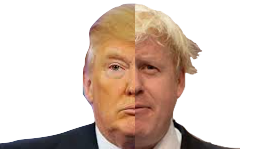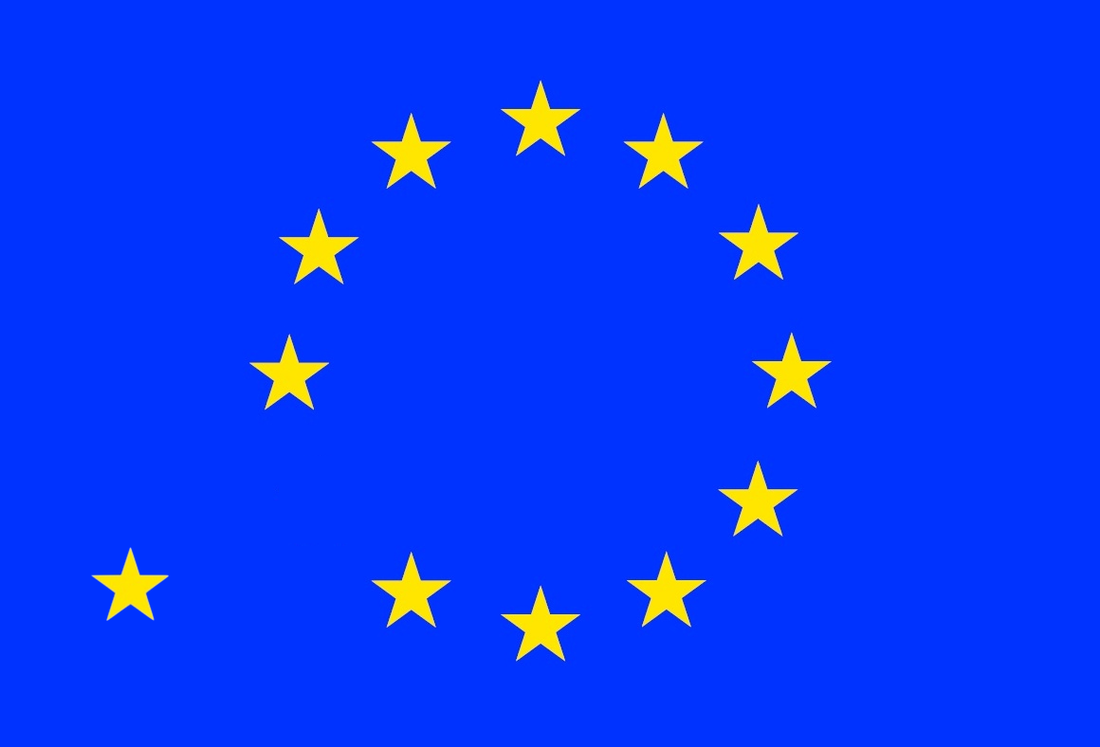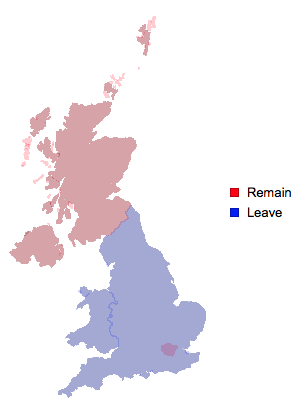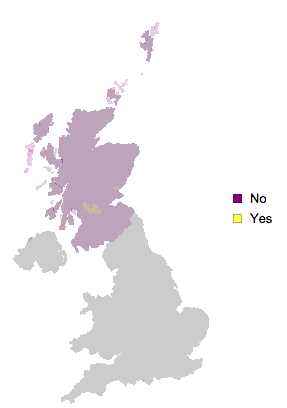On Thursday, June 23, the British people voted on the future of the United Kingdom’s presence in the European Union. Winning by more than a million votes, the advocates of Britain’s exit from the EU were overjoyed at the final results; Britain will no longer remain a member of the EU. In the immediate aftermath of the referendum, the British Pound began to lose its value; the New York Stock Exchange, the Dow Jones, and the NASDAQ suffered dramatic losses; and relations between Britain and the EU declined almost instantly, leaving many scrambling for answers, wondering how such a decision could have been made and what may occur in the future.
Although its effect on the British economy is in itself frightening, the ramifications of Britain’s exit from the EU are especially worrisome.
Britain’s leaving the EU could result in the secession of Scotland and Northern Ireland, dissolving the presence of the Labour Party in Britain and replacing its liberal ideas with the highly conservative, populist, and nativist ideas of the United Kingdom Independent Party, the main propagators of the movement to exit the EU. According to the BBC’s reporting on the overall result of the vote on the referendum, voters in areas in Scotland, Ireland, and London decisively chose for Britain to remain a member of the EU. Before the vote took place, Scottish members of Parliament campaigned ardently against leaving the EU. But following the referendum to leave the European Union, political leaders from Scotland and Northern Ireland have begun discussing seceding from Britain in order to rejoin the EU saying that it is unacceptable for both countries to be forced to leave the union against the will of their citizens.
On September 18, 2014, a referendum on Scottish independence was held and voters decided to remain a part of the United Kingdom, with 55.3% of the electorate voting against independence, and 44.7% voting in favor of independence. But this specific referendum on Scottish independence took place when the United Kingdom was still a member of the EU. Now, with the prospect of Britain no longer a member of the EU, the referendum may be voted on again with an emphatically different result.
If Scotland and Northern Ireland were to secede, the liberal cause would be abandoned in Britain, the Conservative Party would dominate British politics, and the United Kingdom Independent Party would gain power quickly. But in addition to the possibility of Scotland and Northern Ireland leaving Britain, the Labour Party is already facing massive divisions within itself. Labour leader Jeremy Corbyn has received immense criticism from members of his own party for his ineffective attempts to prevent Britain’s exit from the EU, and many Labour MPs (members of Parliament) have expressed concerns on Corbyn’s ability to win the next election and lead the party. This fracture in the Labour Party has also led to nine MPs resigning from their positions.
But besides the numerous resignations and uncertainty within the Labour Party, Corbyn dismissed Hilary Benn, a former Labour Party MP and Shadow Foreign Secretary from May 2015 to June 2016, who was at the forefront of criticizing Corbyn’s actions during the Brexit debate. In a response to Benn’s discharge, Angela Eagle, Labour MP and, like Benn, a member of the Shadow Cabinet (members of the Opposition in Parliament appointed to create and propose alternative policies), attempted to stage a coup in order to force Corbyn to step down as Leader of the Opposition. However, against the pleas of many Labour MPs and in the midst of crisis within the party, Corbyn has refused to resign.
Watching as the Labour Party implodes before him is Nigel Farage, the leader and founding member of the right-wing United Kingdom Independent Party. During the debate over the UK’s withdrawal from the EU, Farage became one of the spokesmen arguing for leaving the union. In the beginning of the campaign to leave the EU, Farage, along with his colleagues in the United Kingdom Independent Party and in the Conservative Party, attempted to sway the British population by proclaiming the economic advantages Britain would gain from leaving the EU.
But as the campaign continued, Farage and his colleagues moved away from focusing on the economy and on to immigration. This tactic proved to be extremely effective at both reinvigorating those who had previously supported a British exit from the EU and persuading many Labour Party supporters to abandon their opposition and vote to leave the union.
But the chaos occurring in British politics is not only tearing apart the Labour Party. Prime Minister David Cameron, Leader of the Conservative Party and advocate for Britain remaining a member of the EU, announced on Friday, June 24 that he would resign before the end of this coming October. Following his resignation, the Conservative Party became divided on whom to nominate for Prime Minister in the upcoming election. The frontrunner for the nominee for Prime Minister in the Conservative Party was Boris Johnson, Mayor of London from 2008 until 2016 and fervent supporter of Britain’s withdrawal from the EU.
Johnson, who proclaimed himself to be pro-immigrant and socially liberal, was the main spokesperson for the “Leave” campaign during the Brexit debate, employing blatantly xenophobic, racist, and deceitful language as he discussed the referendum. Throughout his political career, Johnson seemed to consistently corner himself by mixing his eloquent expression of elitist, nativist, and racist ideas with overtly offensive banter and was the subject of much criticism by journalists and by his fellow politicians for his bigoted rhetoric during the Brexit debate. But in spite of his turbulent career and enormous criticism, Johnson has seen a surge in popularity in recent months and has maintained his previous support from right wing advocates. Much of his success has been attributed to his brash personality, deceitful agenda, and buffoonish persona. On Thursday, June 30, Johnson shocked his supporters, the media, and members of the Conservative Party by declaring that he would not be running for Prime Minister in the upcoming election.
But Johnson’s rise in popularity and ability to persuade much of the electorate into voting against their own best interests through the use of bigoted language does not bode well for the presidential election in America.
Britain’s leaving the EU could result in the secession of Scotland and Northern Ireland, dissolving the presence of the Labour Party in Britain and replacing its liberal ideas with the highly conservative, populist, and nativist ideas of the United Kingdom Independent Party, the main propagators of the movement to exit the EU. According to the BBC’s reporting on the overall result of the vote on the referendum, voters in areas in Scotland, Ireland, and London decisively chose for Britain to remain a member of the EU. Before the vote took place, Scottish members of Parliament campaigned ardently against leaving the EU. But following the referendum to leave the European Union, political leaders from Scotland and Northern Ireland have begun discussing seceding from Britain in order to rejoin the EU saying that it is unacceptable for both countries to be forced to leave the union against the will of their citizens.
On September 18, 2014, a referendum on Scottish independence was held and voters decided to remain a part of the United Kingdom, with 55.3% of the electorate voting against independence, and 44.7% voting in favor of independence. But this specific referendum on Scottish independence took place when the United Kingdom was still a member of the EU. Now, with the prospect of Britain no longer a member of the EU, the referendum may be voted on again with an emphatically different result.
If Scotland and Northern Ireland were to secede, the liberal cause would be abandoned in Britain, the Conservative Party would dominate British politics, and the United Kingdom Independent Party would gain power quickly. But in addition to the possibility of Scotland and Northern Ireland leaving Britain, the Labour Party is already facing massive divisions within itself. Labour leader Jeremy Corbyn has received immense criticism from members of his own party for his ineffective attempts to prevent Britain’s exit from the EU, and many Labour MPs (members of Parliament) have expressed concerns on Corbyn’s ability to win the next election and lead the party. This fracture in the Labour Party has also led to nine MPs resigning from their positions.
But besides the numerous resignations and uncertainty within the Labour Party, Corbyn dismissed Hilary Benn, a former Labour Party MP and Shadow Foreign Secretary from May 2015 to June 2016, who was at the forefront of criticizing Corbyn’s actions during the Brexit debate. In a response to Benn’s discharge, Angela Eagle, Labour MP and, like Benn, a member of the Shadow Cabinet (members of the Opposition in Parliament appointed to create and propose alternative policies), attempted to stage a coup in order to force Corbyn to step down as Leader of the Opposition. However, against the pleas of many Labour MPs and in the midst of crisis within the party, Corbyn has refused to resign.
Watching as the Labour Party implodes before him is Nigel Farage, the leader and founding member of the right-wing United Kingdom Independent Party. During the debate over the UK’s withdrawal from the EU, Farage became one of the spokesmen arguing for leaving the union. In the beginning of the campaign to leave the EU, Farage, along with his colleagues in the United Kingdom Independent Party and in the Conservative Party, attempted to sway the British population by proclaiming the economic advantages Britain would gain from leaving the EU.
But as the campaign continued, Farage and his colleagues moved away from focusing on the economy and on to immigration. This tactic proved to be extremely effective at both reinvigorating those who had previously supported a British exit from the EU and persuading many Labour Party supporters to abandon their opposition and vote to leave the union.
But the chaos occurring in British politics is not only tearing apart the Labour Party. Prime Minister David Cameron, Leader of the Conservative Party and advocate for Britain remaining a member of the EU, announced on Friday, June 24 that he would resign before the end of this coming October. Following his resignation, the Conservative Party became divided on whom to nominate for Prime Minister in the upcoming election. The frontrunner for the nominee for Prime Minister in the Conservative Party was Boris Johnson, Mayor of London from 2008 until 2016 and fervent supporter of Britain’s withdrawal from the EU.
Johnson, who proclaimed himself to be pro-immigrant and socially liberal, was the main spokesperson for the “Leave” campaign during the Brexit debate, employing blatantly xenophobic, racist, and deceitful language as he discussed the referendum. Throughout his political career, Johnson seemed to consistently corner himself by mixing his eloquent expression of elitist, nativist, and racist ideas with overtly offensive banter and was the subject of much criticism by journalists and by his fellow politicians for his bigoted rhetoric during the Brexit debate. But in spite of his turbulent career and enormous criticism, Johnson has seen a surge in popularity in recent months and has maintained his previous support from right wing advocates. Much of his success has been attributed to his brash personality, deceitful agenda, and buffoonish persona. On Thursday, June 30, Johnson shocked his supporters, the media, and members of the Conservative Party by declaring that he would not be running for Prime Minister in the upcoming election.
But Johnson’s rise in popularity and ability to persuade much of the electorate into voting against their own best interests through the use of bigoted language does not bode well for the presidential election in America.

While campaigning in favor of Britain’s withdrawal from the EU, Johnson was able to use his offensive and out-sized personality, as well as his eloquent and deceitful rhetoric in order to sway Labour Party sympathizers, who had previously supported remaining in the EU. Donald Trump has similarly tricked an alarming percentage of the electorate into voting against their own best interests. Although Trump lacks Johnson’s rhetorical ability, his personality has played an integral role in his rise in popularity and political status. However, Trump has not been able to convince as large a percentage of liberal voters as Johnson had, leaving his polling numbers significantly behind from Hillary Clinton’s.
In the end, the main factor in Johnson and the Conservative Party and Farage and the United Kingdom Independence Party’s success in campaigning for Britain’s exit from the EU was not their persuasive rhetoric or entertaining personas. What led to their decisive victory in the vote on the referendum was the complacency on the part of the opposition to Brexit. Once the results of the referendum had been finalized and reported, many voters who had voted for leaving the EU on a whim, in protest, or without fully understanding what the EU was expressed their regrets in interviews with various media outlets.
In a frightening similarity, voters in the United States are complacent about the upcoming presidential election, which could portend an undesirable outcome.
Besides the potential implications of Brexit on American politics, the result of the referendum has left many other members of the EU discussing a referendum on withdrawing from the union as well. Marine Le Pen, president of the National Front, a nationalist and anti-immigration party in France, declared that if she were to be elected President of France she would hold a referendum on leaving the EU. Geert Wilders, leader of the Party for Freedom, a far-right populist and strictly nationalist political party in the Netherlands, proclaimed that “Nexit” (a portmanteau of the words Netherlands and exit used to describe a referendum on leaving the EU) would be a main topic in next year’s general election. Members of Italy’s far-right Northern League political party have expressed a strong desire to leave the EU; so far their support has been minimal, but has recently been increasing. Norbert Hofer, a candidate for President of Austria in the 2016 general election and member of the right-wing populist Freedom Party, called for a vote on abandoning the EU. Jimmie Åkesson, leader of the national-conservative and far-right populist Sweden Democrats, a party that saw a substantial increase in support during the 2014 election, has spewed anti-immigration rhetoric and has demanded that a referendum be held on leaving the EU. The success of Brexit has brought about chaos in Europe and has paved the way for the European far-right to gain popularity in an unprecedented manner.
ZWG
In the end, the main factor in Johnson and the Conservative Party and Farage and the United Kingdom Independence Party’s success in campaigning for Britain’s exit from the EU was not their persuasive rhetoric or entertaining personas. What led to their decisive victory in the vote on the referendum was the complacency on the part of the opposition to Brexit. Once the results of the referendum had been finalized and reported, many voters who had voted for leaving the EU on a whim, in protest, or without fully understanding what the EU was expressed their regrets in interviews with various media outlets.
In a frightening similarity, voters in the United States are complacent about the upcoming presidential election, which could portend an undesirable outcome.
Besides the potential implications of Brexit on American politics, the result of the referendum has left many other members of the EU discussing a referendum on withdrawing from the union as well. Marine Le Pen, president of the National Front, a nationalist and anti-immigration party in France, declared that if she were to be elected President of France she would hold a referendum on leaving the EU. Geert Wilders, leader of the Party for Freedom, a far-right populist and strictly nationalist political party in the Netherlands, proclaimed that “Nexit” (a portmanteau of the words Netherlands and exit used to describe a referendum on leaving the EU) would be a main topic in next year’s general election. Members of Italy’s far-right Northern League political party have expressed a strong desire to leave the EU; so far their support has been minimal, but has recently been increasing. Norbert Hofer, a candidate for President of Austria in the 2016 general election and member of the right-wing populist Freedom Party, called for a vote on abandoning the EU. Jimmie Åkesson, leader of the national-conservative and far-right populist Sweden Democrats, a party that saw a substantial increase in support during the 2014 election, has spewed anti-immigration rhetoric and has demanded that a referendum be held on leaving the EU. The success of Brexit has brought about chaos in Europe and has paved the way for the European far-right to gain popularity in an unprecedented manner.
ZWG






